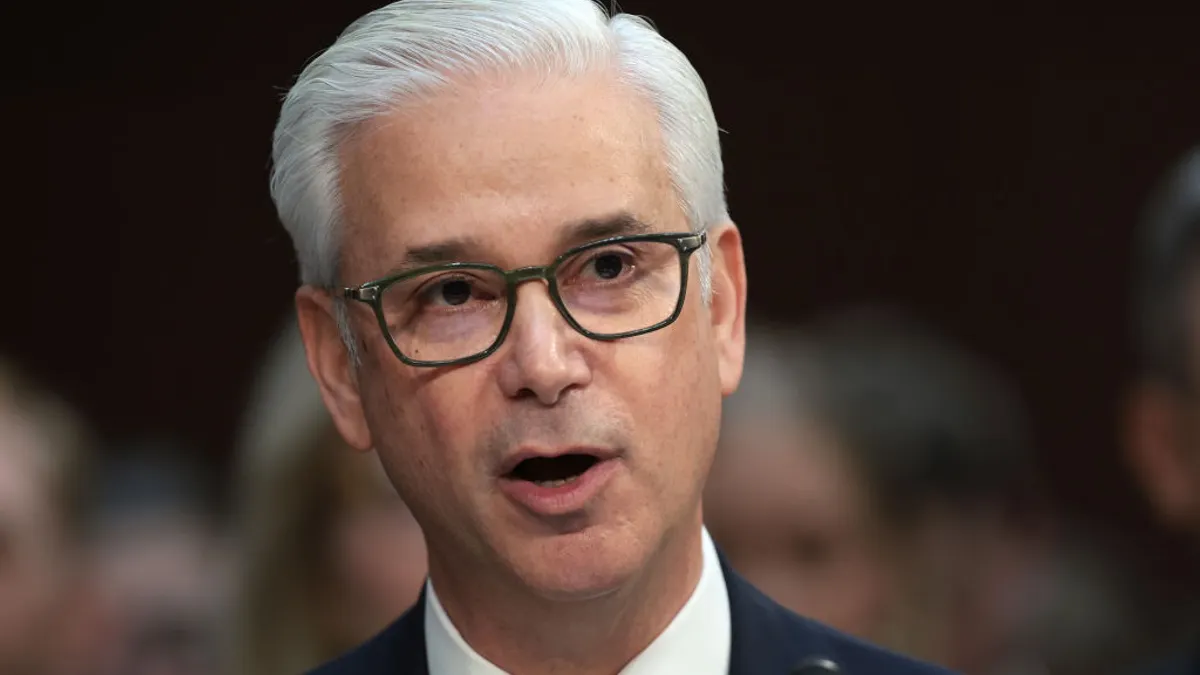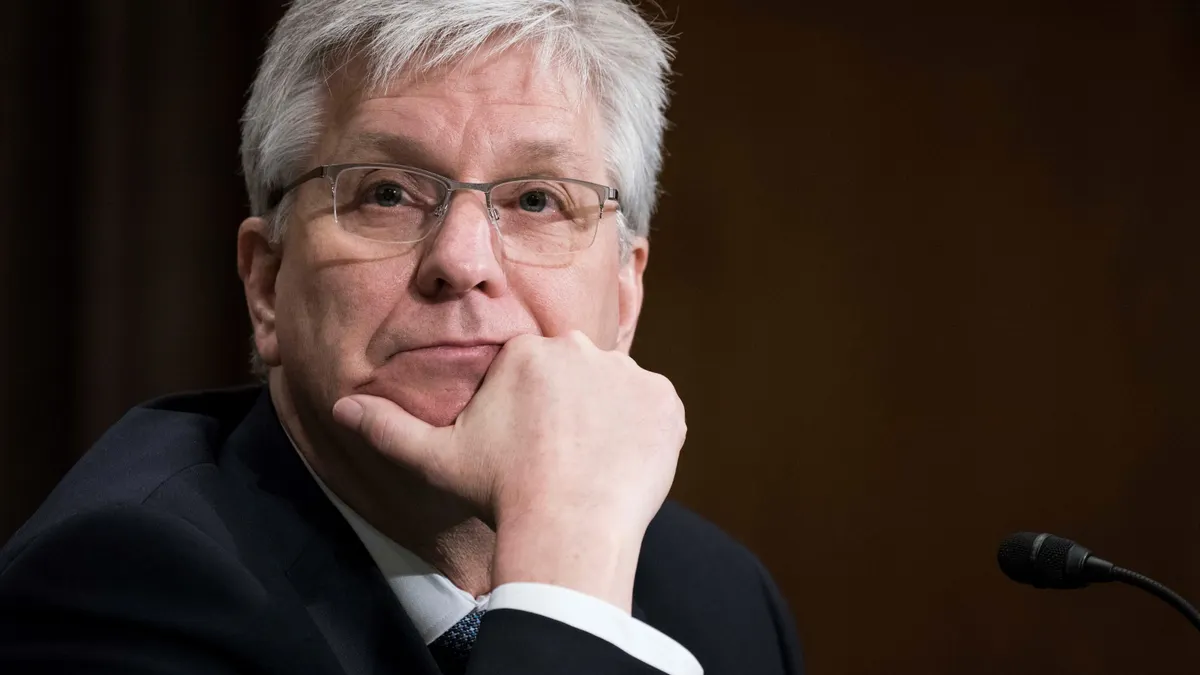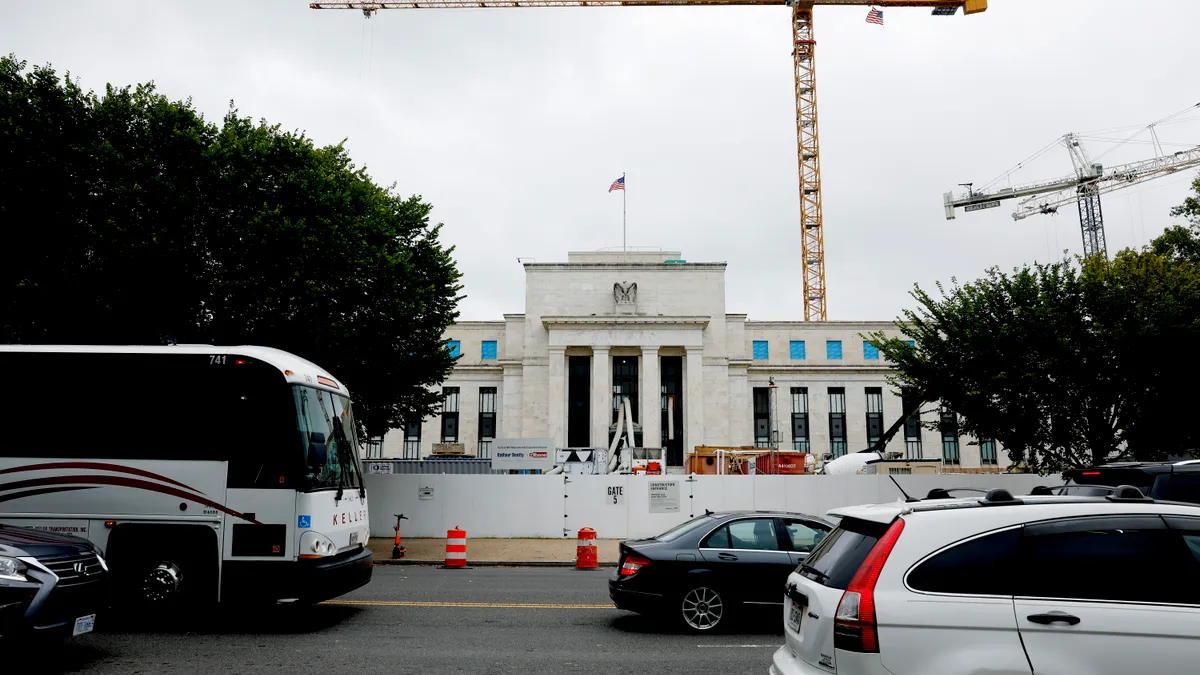Wells Fargo intends to give CEO Charlie Scharf a $30 million one-time equity award and install him as chair of its board, in addition to serving as chief executive, the bank announced Thursday.
The move is meant to lock Scharf into leading Wells for the next six years and recognize his role in restoring the bank’s reputation, boosting its risk and control infrastructure, and identifying and investing in “core” business areas.
Regulators have terminated 13 consent orders against Wells since Scharf became CEO in 2019, including a $1.95 trillion asset cap the Federal Reserve lifted in June – a remnant of the bank’s 2016 fake-accounts scandal.
Wells did not give a timeline for handing the chair role to Scharf – nor did it detail a future role for the bank’s current chair, Steven Black. The bank did, however, note that it intends to appoint a lead independent director. Scharf and Black have served together before; Black was a director on BNY’s board when Scharf served as chair and CEO of the bank in 2018 and 2019.
“We are thrilled to recognize Charlie's significant contributions to Wells Fargo,” Black said in a statement. “We look forward to Charlie’s continued guidance and strategic direction as we navigate the future."
Depending on the timing, Wells could become the third U.S.-based systemically important financial institution to combine its chair and CEO roles this year. BNY in June named CEO Robin Vince to concurrently serve as its chair, starting Sept. 1. Morgan Stanley CEO Ted Pick assumed chair responsibilities Jan. 1. That leaves Citi as the only U.S. SIFI (there are eight) to maintain separate chair and CEO roles.
Scharf would also become at least the third CEO of a top-10 U.S. bank this year to receive an eight-figure equity award. Goldman Sachs disclosed in January that it would give CEO David Solomon an $80 million retention bonus. The bank gave the same deal to President John Waldron, drawing criticism from proxy advisers this spring. Capital One, meanwhile, granted CEO Richard Fairbank a $30 million one-time award in June after the bank closed its long-running acquisition of Discover.
Scharf’s award is not limited to $30 million in restricted share rights. He also is set to receive 1,046,000 stock options. The award will vest on a pro rata basis following the fourth, fifth and sixth anniversaries of the grant date. Unvested portions of the award will be forfeited if Scharf resigns or retires earlier, the bank said. Also, Scharf must keep at least 50% of the vested shares throughout his time at Wells and a year after he leaves, according to the bank.
Scharf, in a statement Thursday, largely deferred to his team.
“Over the last several years, our Operating Committee and our 213,000 employees have executed a multi-faceted transformation under extremely difficult circumstances,” he said. “It is a privilege to lead Wells Fargo and our talented and dedicated team, and I look forward to building on our significant momentum to continue improving our performance and market position in everything we do.”
The award further stabilizes leadership at Wells and removes any incentive Scharf might have to explore options outside of the bank. Observers have casually speculated that Scharf could have been a dark-horse candidate to succeed mentor Jamie Dimon as CEO of JPMorgan Chase. Dimon has hinted that the clock is ticking on his tenure atop the bank, and a series of personnel moves – first in 2021, then last year and again this year (twice) – has alternately raised the profiles of various potential internal successors.
The value of Scharf’s award will fluctuate along with Wells’ stock price, the bank said. The options, for their part, will only have value insofar as the bank’s stock price appreciates throughout the vesting period.
Scharf wasn’t the only Wells executive whose compensation came under the microscope. Wells’ human resources committee decided not to keep a target total compensation structure for its named executive officers, the bank said Thursday in a filing with the Securities and Exchange Commission. The panel, rather, will “determine incentive compensation for each NEO, including the CEO, using a holistic performance assessment that evaluates NEO performance based on individual and Company performance, as well as line of business performance, where applicable, relative to established financial and non-financial performance criteria,” the bank said.
Scharf will be Wells’ first CEO-chair hybrid in nearly a decade. The bank changed its bylaws after former Chair and CEO John Stumpf resigned in October 2016, to require an independent chair. Wells amended those bylaws this week to allow Scharf to serve in a dual capacity. Another new amendment requires the bank to maintain an independent lead director.





















